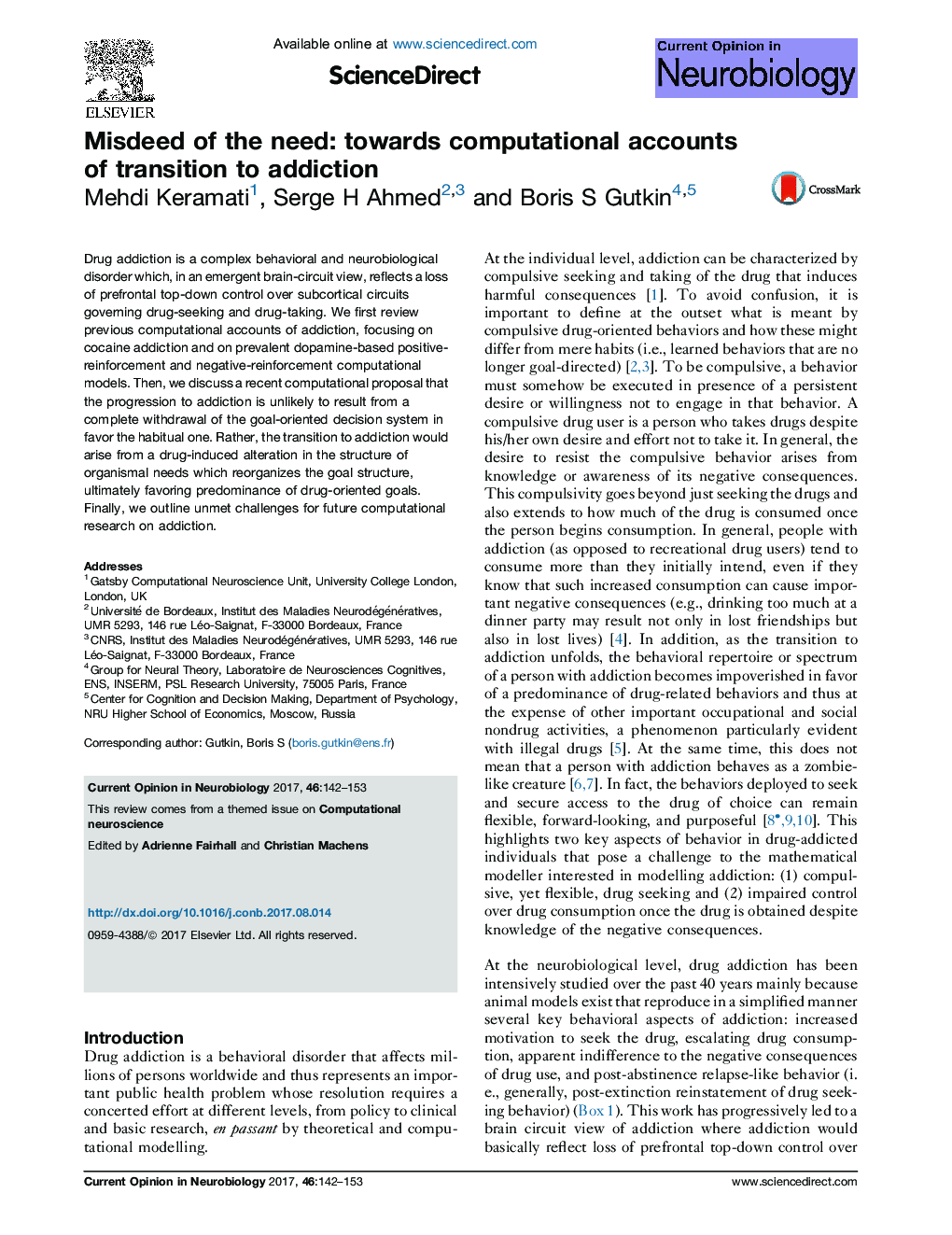| Article ID | Journal | Published Year | Pages | File Type |
|---|---|---|---|---|
| 5736981 | Current Opinion in Neurobiology | 2017 | 12 Pages |
Abstract
Drug addiction is a complex behavioral and neurobiological disorder which, in an emergent brain-circuit view, reflects a loss of prefrontal top-down control over subcortical circuits governing drug-seeking and drug-taking. We first review previous computational accounts of addiction, focusing on cocaine addiction and on prevalent dopamine-based positive-reinforcement and negative-reinforcement computational models. Then, we discuss a recent computational proposal that the progression to addiction is unlikely to result from a complete withdrawal of the goal-oriented decision system in favor the habitual one. Rather, the transition to addiction would arise from a drug-induced alteration in the structure of organismal needs which reorganizes the goal structure, ultimately favoring predominance of drug-oriented goals. Finally, we outline unmet challenges for future computational research on addiction.
Related Topics
Life Sciences
Neuroscience
Neuroscience (General)
Authors
Mehdi Keramati, Serge H Ahmed, Boris S Gutkin,
